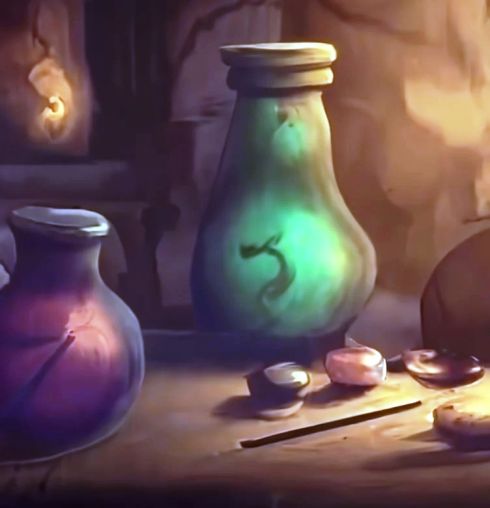Difference between revisions of "Pottery (cantrip)"
Tao alexis (talk | contribs) |
Tao alexis (talk | contribs) |
||
| Line 1: | Line 1: | ||
| − | [[File:Pottery (cantrip).jpg|right| | + | [[File:Pottery (cantrip) b.jpg|right|490px|thumb|]] |
'''Pottery''' wills into existence any common — with emphasis on ''common'' — household object made of pottery, earthenware or stoneware, up to 18 inches in diameter or height. | '''Pottery''' wills into existence any common — with emphasis on ''common'' — household object made of pottery, earthenware or stoneware, up to 18 inches in diameter or height. | ||
Revision as of 22:01, 27 November 2023
Pottery wills into existence any common — with emphasis on common — household object made of pottery, earthenware or stoneware, up to 18 inches in diameter or height.
| Range | 10 ft. |
| Duration | until next sunrise |
| Area of Effect | 1 object |
| Casting Time | 1 round |
| Saving Throw | none |
| Level | cantrip |
Art pottery such as porcelain or faience are not possible. Common objects include cooking ware, jugs, cups, mugs, plates, vases, jars and chamber pots. The pottery object functions according to its purpose, so that it can be safely placed in a normal fire, hold liquids and food, or stand up to being fired in an oven for the purpose of heating or melting another material.
Once created, the object remains in existence until the sun rises the next day or until it becomes broken in some way. Though it feels tactile, cantrip-created objects don't receive a saving throw. If exposed to a condition that would require a save, the object automatically fails, shatters and dissolves.
Created objects can serve as missiles, causing 1-2 damage if a to hit roll is successful. They can be filled with lamp oil and used for grenade purposes.
The pottery object emits weak magic for the purpose of magic detection.
